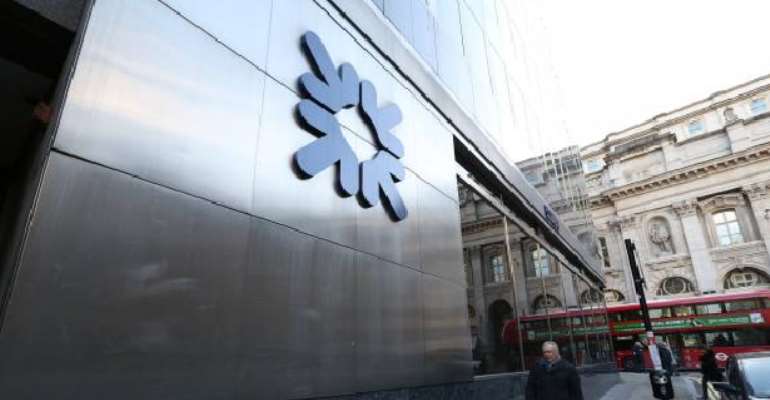RBS Seeks To Regain Britons' Trust After $13.6 Billion Loss

Royal Bank of Scotland (RBS.
L) launched a campaign to transform itself from pariah to trusted British lender by slashing costs and repositioning itself as a UK-focused retail and commercial bank.
New chief executive Ross McEwan is under pressure to restore RBS's reputation with the general public and its political masters after a torrid year of fines, customer complaints and technology problems.
"We are the least trusted bank in the least trusted sector in the marketplace," McEwan told reporters on Thursday.
"Let's be quite clear.
We are too expensive, we are too bureaucratic and we need to change.
" The bank posted an 8.
2 billion pound ($13.
64 billion) loss for 2013 due to restructuring costs and misconduct charges.
RBS has lost a total of 46 billion pounds since it was bailed out during the financial crisis in 2008, equivalent to the amount of money taxpayers poured into it.
RBS, 81 percent owned by the government, is years away from moving into private ownership and needs to win over public and political opinion to smooth its path out of state control.
The government pushed out McEwan's predecessor, Stephen Hester, last year partly because of his continuing commitment to the bank's large investment banking franchise.
McEwan wants to simplify the bank, cutting its divisions from seven to three, reducing investment banking and shrinking its hundreds of committees.
He said the decision to focus the bank around three core areas - retail, commercial and corporate - and to concentrate 80 percent of the bank's assets in the UK, from 60 percent currently, was not politically motivated.
"This is our plan.
We own it," he said.
RBS is planning to cut costs by 5.
3 billion pounds, or 40 percent, over the next three to four years, with 3.
1 billion of that coming from the sale of businesses such as its U.
S.
retail franchise Citizens and the rest from cutting overheads.
In the meantime, RBS warned that there would be "elevated" restructuring costs over the next two years to get the bank's customer service up to scratch and its costs down.
The bank also said there would be a lag before RBS reaped the benefit of a UK economic recovery.
Analysts said it would take some time for investors to see the benefit of the restructuring.
"We see the strategic plan as setting out a realistic pathway to more sustainable earnings and a lower cost of equity," Morgan Stanley analysts said in a note to clients.
RBS was the biggest faller among European banking stocks .
SX7P, down 6.
5 percent in morning trade.
PRAGMATIC RBS's global ambitions nearly brought the bank to collapse during the financial crisis and it has made huge progress in slashing 1 trillion pounds off what was once the biggest balance sheet in the world.
But RBS has become, as one parliamentarian put it this week, "the unacceptable face of British banking".
While taxpayers sit on a paper loss of around 14 billion pounds from their bailout of the bank, it has continued to pay bumper bonuses.
This year, RBS is paying out 576 million pounds in staff bonuses for 2013, down 15 percent on the year before.
"We need to be pragmatic.
I need to pay these people fairly in the market place to do the job," McEwan said.
McEwan, a New Zealander who joined RBS from Commonwealth Bank of Australia (CBA.
AX), also wants to end RBS's practice of offering cheaper rates, known as "teasers" to new customers.
"I find it abhorrent that you would give a better rate to a new customer than you would to somebody who has been with you for 30 years.
" he said.
The bank, which employs 12,000 people in Scotland and has its headquarters in Gogarburn, to the west of Edinburgh, said that it was monitoring the debate about Scottish independence.
"This is a huge issue for Scotland and we are neutral and won't do anything to raise the temperature of that vote," McEwan said.
REUTERS
